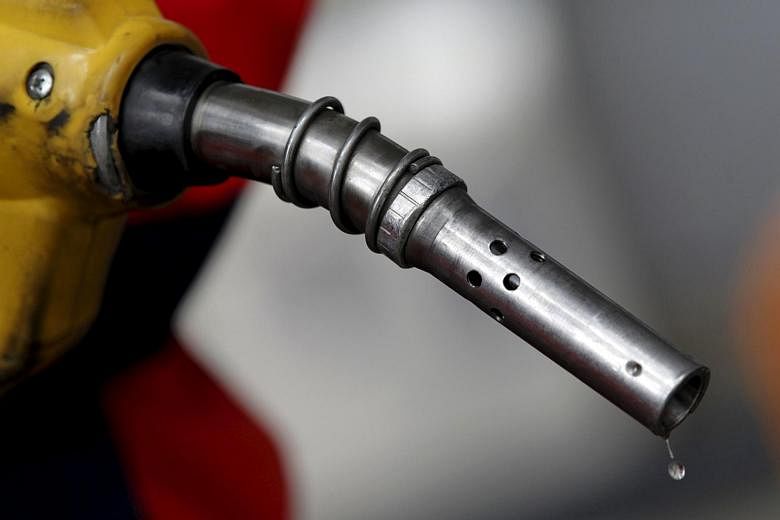SINGAPORE (REUTERS) - Oil prices dipped on Monday (March 14), with global oversupply and slowing economic growth weighing on markets.
US West Texas Intermediate (WTI) crude futures were trading at US$38.26 per barrel at 0146 GMT, down 24 cents from their last settlement.
International benchmark Brent futures were down 8 cents at US$40.31 a barrel.
While Morgan Stanley said that oil prices had likely bottomed out, the bank warned that a slowdown in economic growth and high production would prevent sharp rises.
"Oil prices now seem to have bottomed, even though they are likely to stay subdued for the rest of this year before starting to move higher in 2017," the US bank said.
Morgan Stanley also said that cheap oil had not provided the economic boost to growth that many had hoped for.
"When oil prices are falling below production costs, the income gains for consumers will be smaller than the costs to producers and falling oil prices become a negative-sum game," it said.
For 2016, the bank said it was "no longer looking for an acceleration in 2016 GDP growth" and that the risk of a global recession was now 30 percent.
Following a 70 per cent price rout between mid-2014 and early 2016, oil markets are in flux.
Many analysts expect a modest price recovery, while others see another slump.
The International Energy Agency (IEA) on Friday said that oil prices had likely bottomed out due to output cuts in the United States and other producers outside the Middle East-dominated Organization of the Petroleum Exporting Countries (OPEC).
Others, like Goldman Sachs, warn that global overproduction - which sees over 1 million barrels of crude produced in excess of demand every day - will pull prices back down again just as happened after a short rally in early 2015.
So far, demand in core markets like China remains strong.
China's January-February refinery throughput rose 4.6 per cent compared to the same period a year earlier to 87.08 million tonnes, or 10.59 million barrels per day (bpd), data from the National Bureau of Statistics showed on Saturday.
The data release came shortly after China reported record daily crude imports of 8 million barrels per day.
In traded markets, sentiment is leaning towards higher prices, with the amount of managed short positions open for WTI, contracts which would profit from falling prices, down over 40 per cent since mid-February, while the amount of trades betting on price increases stands near record highs.

